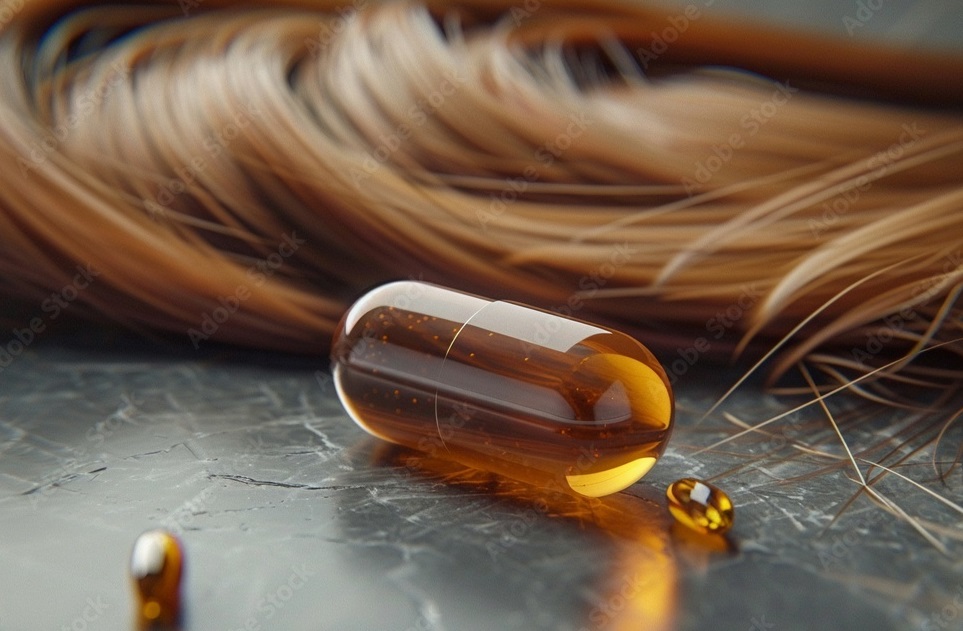In recent years, the quest for luscious locks has led many to consider hair-growth supplements as a potential solution. The promise of thicker, fuller hair in a bottle is appealing, but do these supplements really deliver? Let’s dive into what hair-growth supplements are, how they’re supposed to work, and what the science says about their effectiveness.
What are Hair-Growth Supplements?
Hair-growth supplements are essentially dietary pills or gummies that claim to boost hair health and growth. They’re packed with a mix of vitamins, minerals, and sometimes herbal ingredients. Think of them as a nutritional boost for your hair. Common stars of the show include biotin, collagen, vitamin D, and a few others.
How Are They Supposed to Work?
The basic idea is that these supplements fill in any nutritional gaps that might be affecting your hair. Here’s a quick rundown of some of the usual suspects:
- Biotin: Often dubbed the “hair vitamin,” biotin is a B-vitamin that helps with cellular energy. If you’re low on biotin, it can lead to hair thinning. For those who are already getting enough biotin, though, the benefits might not be as noticeable.
- Collagen: This protein is like the scaffolding for your skin and hair. Some believe that more collagen might mean stronger, more elastic hair. Research here is still evolving, so while there’s some promise, we’re not quite there yet.
- Vitamin D: Known for its role in bone health, vitamin D also helps with the hair growth cycle. If you’re deficient, boosting your levels might help. If not, the impact might be minimal.
- Iron and Zinc: These minerals are essential for healthy hair. If you’re missing out on them, it could affect your hair growth. However, too much iron or zinc can be harmful, so balance is key.
- Saw Palmetto: This herbal remedy is thought to interfere with a hormone linked to hair loss. Some people swear by it, but more research is needed to confirm its effectiveness.
The Science Behind Hair-Growth Supplements
Here’s where it gets a bit mixed. While many folks have positive stories about hair-growth supplements, scientific evidence doesn’t always match up:
- Biotin: It’s great if you’re deficient in biotin, but if you’re not, taking more might not make a difference.
- Collagen: Some studies suggest collagen could help with hair health, but more research is needed to firmly establish this.
- Vitamin D: There’s evidence that vitamin D deficiency can lead to hair loss, so supplementing if you’re low might help. But if your levels are already good, the effect may be minimal.
- Iron and Zinc: Essential if you’re deficient, but remember, more isn’t always better. Too much can cause problems.
- Saw Palmetto: There’s some support for its benefits, especially for certain types of hair loss, but more conclusive research is needed.
What to Consider Before Taking Supplements?
- Consult with a Professional: Before diving into supplements, chat with your doctor or a dietitian. They can help determine if you have deficiencies and recommend the right approach.
- Quality Matters: Not all supplements are created equal. Opt for reputable brands and stick to recommended dosages to avoid potential side effects.
- Look at the Whole Picture: Hair loss can be due to various factors beyond nutrition, like stress or genetics. Supplements might help, but they’re not a magic fix.
- Eat Well: A balanced diet is often your best bet for healthy hair. Supplements can help, but they should complement a good diet, not replace it.
Conclusion:
Hair-growth supplements might offer benefits, especially if you’re lacking in certain nutrients. But remember, they’re not a miracle cure. For the best results, focus on a balanced diet, consult with healthcare professionals, and manage your expectations. Good hair care is about a holistic approach, and supplements are just one piece of the puzzle.
Also Read:
